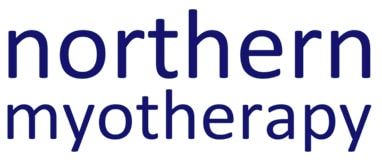What You Should Know About TMJ Disorders

Do you often feel a dull, aching pain in your jaw? Do you hear it click or pop whenever you yawn or even talk? If you answered yes to either of those questions, there’s a chance you’re suffering from a temporomandibular joint disorder (TMJ disorder). In this article, we’ll look at the jaw-dropping facts (we’re sorry, we had to) about this all too common ailment. One of the biggest problems with TMJ disorder is how often it goes undiagnosed or, even worse, misdiagnosed. As with almost anything else in life, the earlier you know, the easier it is to do something about it.
What’s a Temporomandibular Joint?
Your TMJ or Temporomandibular Joints are the joint and jaw muscles that connect your jawbone to the skull, and are the most used joint in your body. The skull and the jawbone are separated by a cartilage disk that serves as a shock absorber and joint lubricant. You use it when you eat, talk, breathe, drink, yawn, and express your feelings and emotions. Essentially, if you’re doing anything that helps to keep you alive, you’re using it. Because they get through so much daily work, many people will suffer some sort of TMJ pain in the course of their lifetime.
What causes a TMJ disorder?
Primarily, TMJ disorders occur when something adversely affects your jaw joints or jaw muscles. There’s a variety of causes ranging from injury to arthritis. In many cases they result from an injury that moves the TMJ out of its proper alignment, or an inflammation such as arthritis. However, there are instances when TMJ disorders are caused by seemingly innocuous routines such as teeth grinding or jaw clenching. It sounds unbelievable, but even poor posture can contribute to strains in your jaw, neck, and facial muscles.
What are the symptoms of a TMJ disorder?
While pain or tenderness is not always present, when you have a TMJ disorder you may experience mild to debilitating symptoms such as:
- Clicking, popping or grating sounds when you move your jaw
- Pressure behind your eyes or inside the ears
- Ringing in the ears and dizziness
- Locking of the jaw joint, making it difficult to open and close your mouth
- Sensitive or sore teeth
- Chronic headaches and migraines
- Back, neck and shoulder pain
What exercises can you do to relieve the pain?
If you have one or more of the symptoms listed, you should try a few exercises to see if they offer any pain relief.
The simplest thing you can do to relax your jaw is a simple breathing exercise. Inhale for 5-10 seconds, then slowly exhale for another 5-10 seconds. Repeat this 5-10 times. Although it’s obviously the simplest thing you can try, focusing on your breathing can help to relax and relieve tension.
Alternatively, you can try strengthening and stretching your jaw. Put your thumb under your chin and gently push downward against it using your jaw muscles. Keep on opening your mouth against moderate force and hold it for 5-10 seconds. Another thing you can do is to open your mouth as widely as possible and then place your index finger between your chin and lower lip (maybe it’s best to try this one in the privacy of your own home). Push inward against the resistance.
One final stretch utilizes your tongue, rather than your hands. Place your tongue on the roof of your mouth and glide your lower jaw out as far it will go, then return it its natural position, allowing for 5 seconds in each position. This can also be done with a closed mouth.
If all else fails, see an expert
If you’ve tried these simple relief exercises aren’t having any luck, get on the phone and book an appointment to come see us here at Northern Myotherapy. We’re specialists in treating muscle and joint strains, and are dedicated to helping you live a full, pain-free life.
If the problem persists we’ll be able to refer you to a specialist doctor – Associate Professor Michael Stubbs – who will be able to look into alternative avenues of treatment.
Whatever you do, don’t panic. Bear in mind that jaw pain and chronic headaches do not always mean that a TMJ disorder has reared its irritating head. But, if you regularly experience any of the symptoms listed above, don’t leave it too late before getting in touch. Give us a call and let’s get you back on the road to wellness.
For myotherapy, dry needling and remedial massage in Brunswick, contact our friendly and trusted myotherapist at 03 9078 9953.







